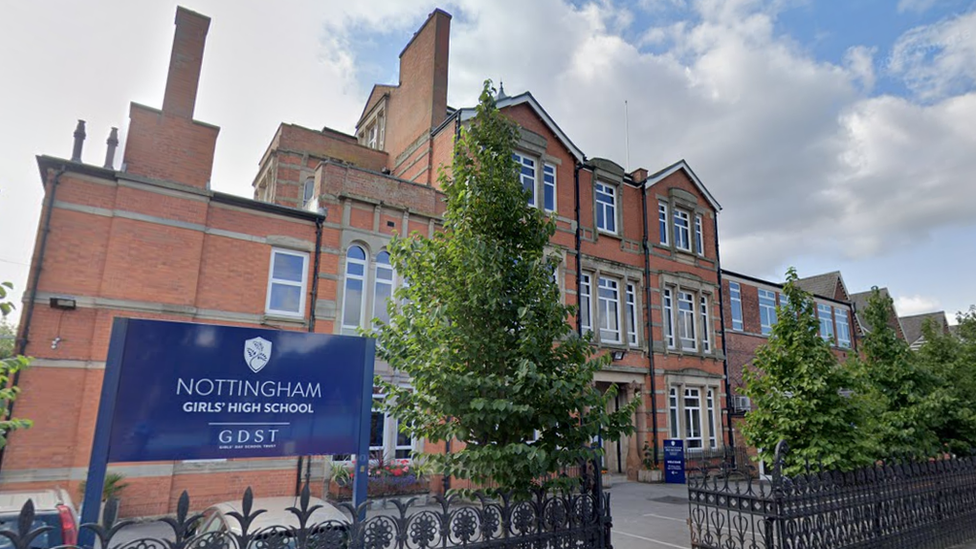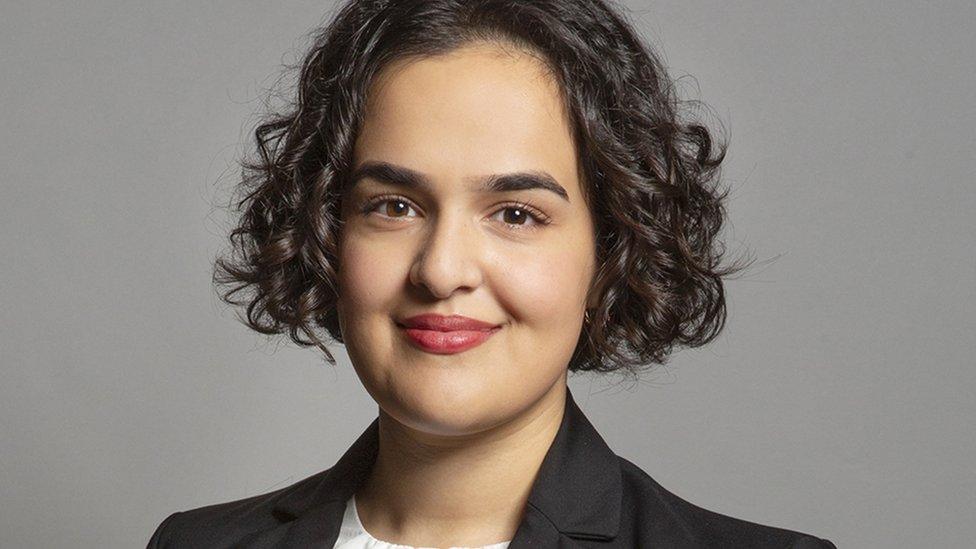Row breaks out over school trust's trans policy
- Published

Nottingham Girls' High School is one of the schools that will not be admitting pupils based on gender identity
A row has broken out over a school trust's decision to not admit transgender girls.
The Girls' Day School Trust (GDST), which runs 25 schools in England and Wales, will only be admitting pupils based on their "legal sex" rather than their gender identity.
It said it was doing this to protect its schools' single-sex statuses.
But Labour MP Nadia Whittome, who has one of the schools in her constituency, has criticised the move.
In relation to applicants who are "legally male but identify as trans or non-binary", the trust's policy says its schools "do not accept applications from students who are legally male".

Nadia Whittome said the trust was "hiding behind" the Equality Act
The Nottingham East MP told ITV, external: "The trust is hiding behind the Equality Act as a reason for this policy not to admit transgender girls.
"But the Equality Act itself is clear on this.
"There's a provision in it that allows single-sex schools to maintain their single-sex exemption while also admitting pupils of the opposite sex in exceptional circumstances."
The trust's policy also states applicants who are "legally female but identify as trans or non-binary" will be considered on a "case-by-case basis".

Analysis
By Josh Parry, BBC News LGBT producer
The Girls' Day School Trust isn't the first set of single-sex schools to find themselves in the headlines for policies on trans or non-binary students.
It's in part because the law concerning the issue - The Equality Act 2010 - is seen by many as open to legal interpretation when it comes to gender identity.
Some say that not admitting transgender or non-binary students is indirect discrimination against those students.
Others, and this is The Girls' Day School Trust's current position, argue the act allows for exemptions based on people's biological sex.
In 2017, the Equalities and Human Rights Commission said trans pupils were "being failed by the system" and needed fresh guidance to help schools become more inclusive.
Their guidance was set to be published in 2018, but has since been postponed. A new publication date is yet to be announced.
Given the increased debate, it's likely there'll be renewed calls - from both transgender charities and gender critical organisations - for clearer guidance.

Cheryl Giovannoni, the trust's CEO, has said trans pupils who are already at their schools can remain for as long as they wish.
She added: "Our trans students are welcome in our schools and our policy primarily sets out ways in which schools can support them.
"Young people exploring their gender identity need space and time to make decisions, free of pressure."
But she said the schools operated a single-sex admissions policy without breaching the Equality Act "on the basis of an exemption relating to biological sex".
She added: "Under current laws and guidance, the GDST believes that an admissions policy based on gender identity rather than the legal sex recorded on a student's birth certificate could jeopardise the status of GDST schools as single-sex schools under the act.
"We will continue to monitor the legal interpretation of this exemption."

Follow BBC East Midlands on Facebook, external, on Twitter, external, or on Instagram, external. Send your story ideas to eastmidsnews@bbc.co.uk, external.